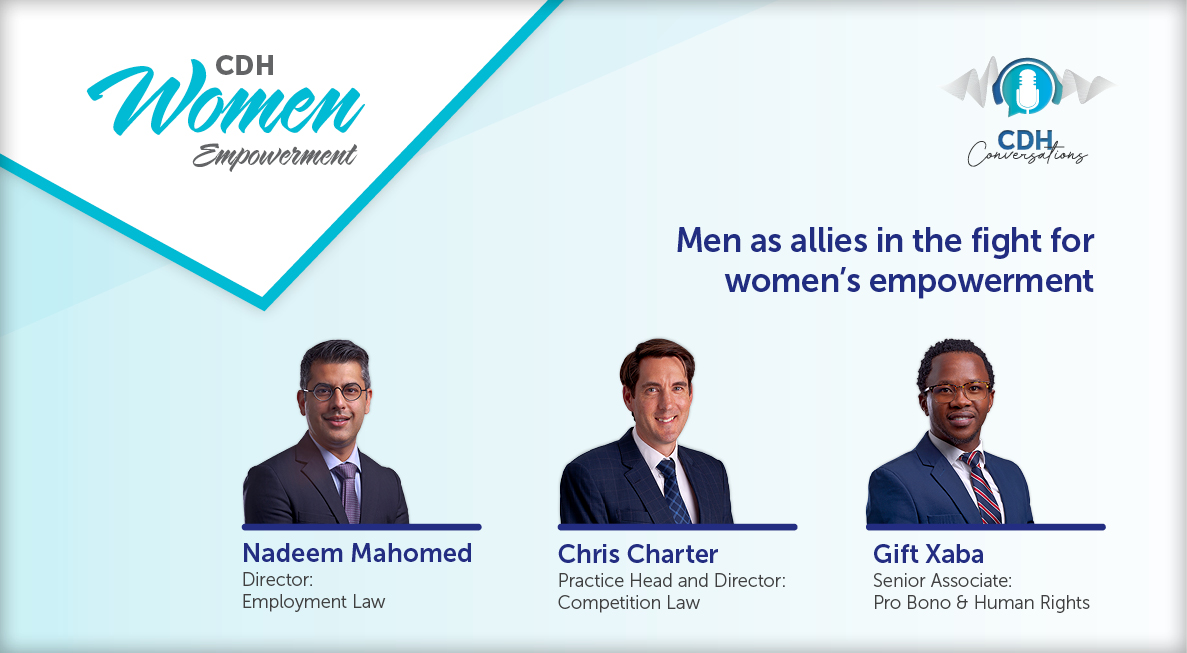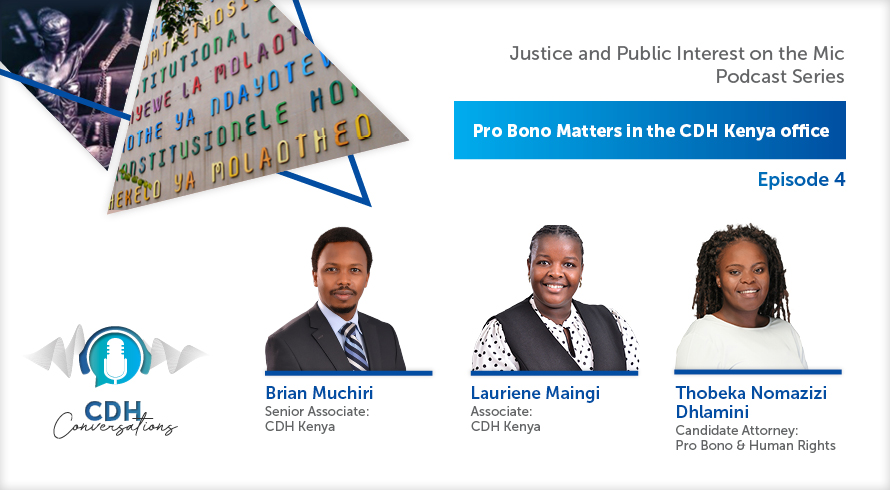Here we go again: The High Court gets a turn to weigh in on a protracted dispute
Facts
The litigious history between the taxpayer in this case and the Commissioner for the South African Revenue Service (SARS) is protracted and cumbersome to wade through. The first dispute between the parties arose in 2007, in relation to the taxpayer’s 2002–2004 years of assessment (YOAs), and subsequent disputes have arisen in respect of the taxpayer’s 2005–2012 YOAs and its 2013–2017 YOAs.
The 2002–2004 YOAs dispute was brought to finality in the Supreme Court of Appeal (SCA) in 2014, after which the taxpayer requested that SARS compute its tax liabilities for the 2005–2012 YOAs in accordance with the outcome. However, SARS declined to do so on the basis that it had reconsidered the facts and relevant legal principles, as a consequence of which SARS included a substantial recoupment in the taxpayer’s tax computation. Thus, the dispute in respect of the 2005–2012 YOAs arose.
Before this dispute was finalised, the taxpayer had to submit its tax returns for the 2013 and 2014 YOAs. This was done by adopting the same approach as was taken by the taxpayer in respect of the 2005–2012 YOAs. SARS rejected this approach and the parties engaged in dispute resolution proceedings in respect of the taxpayer’s 2013 and 2014 YOAs.
In October 2016, the taxpayer and SARS entered into an agreement (Agreement) to extend the prescription period for the assessment of all tax liabilities for the 2013 and 2014 YOAs (in terms of section 99(2)(c) of the Tax Administration Act 28 of 2011 (TAA)) until the dispute relating to the 2005–2012 YOAs was finally determined. Importantly, the Agreement:
- noted that the outcome of the 2005–2012 YOA dispute (the “Final Decision” as referenced in the Agreement) would have an impact on the tax liability determination of subsequent YOAs: and
- the Final Decision would be given effect to by both parties in respect of the 2013–2014 YOAs.
The parties proceeded to litigate the 2005–2012 YOAs dispute. However, on the basis that SARS continuously failed to adhere to the prescribed deadlines, the taxpayer applied for default judgment in the tax court in 2017. SARS again failed to timeously submit the necessary documents in respect of the application for default judgment and as such, judgment was granted in favour of the taxpayer. This decision was not taken on appeal by SARS. Barring a few issues pertaining to the payment of interest by SARS to the taxpayer, the 2005–2012 dispute had been finalised.
The taxpayer then relied on the to attempt to persuade SARS that the outcome of the 2005–2012 dispute (being the Final Decision, which favoured the taxpayer) was to be applied in respect of the 2013–2014 YOAs. SARS declined, contending that the outcome of the 2005–2012 dispute did not constitute a “Final Decision” that would apply to the subsequent YOAs, as the merits of the dispute had not been judicially determined.
A year later, SARS extended its latest audit to include the taxpayer’s 2013–2017 YOAs. The issues in dispute remained unchanged save for the additional YOAs that came under review.
Substantial litigation took place between the parties thereafter, including multiple applications by the taxpayer for default judgment on the basis that SARS failed to adhere to the prescribed tax court rules’ deadlines.
In October 2020, another agreement (Agreement 2) to extend the prescription period in respect of the taxpayer’s 2013–2016 YOAs was orally agreed to between the parties. However, this agreement was only signed by SARS in November 2020, whereas it was specified in the agreement that it had to be signed by October 2020. The taxpayer thus contended that Agreement 2 was invalid and that the 2013–2016 YOAs had prescribed, therefore precluding SARS from raising additional assessments in respect thereof.
Two applications were brought by the taxpayer in the present case.
Judgment
The first application
The first application brought by the taxpayer sought an order precluding SARS from assessing the taxpayer’s tax liabilities for the 2013–2016 YOAs on a basis different to the outcome pertaining to the 2005–2012 YOAs.
As the 2005–2012 YOAs default judgment had not been taken on appeal by SARS, the taxpayer contended that the outcome thereof constituted a “Final Decision” in terms of the Agreement and that the parties were thus bound by that decision in respect of the subsequent YOAs. To this end, the taxpayer referred to section 100(1)(f) of the TAA, which provides that a final decision in respect of an assessment exists when “the matter has been determined by the tax court and there is no right of further appeal”.
SARS, however, maintained its argument that the default judgment only addressed the issue of SARS’ application for condonation for its failure to adhere to the tax court rules’ time periods and that the merits of the dispute between the parties was not considered or pronounced on by the court in that case.
In the present matter, the court took the view that the argument advanced by the taxpayer would pass muster only to the extent that the default judgment referred to by it constituted a final pronouncement on the substantive issues comprising the dispute between the parties. To this end, the court highlighted that the default judgment specifically stated that in that case, the court was “not determining the merits of the disputed assessments” because it had not been placed in a position to decide whether or not the prospects of success of SARS’ case were good.
The court in the present case then reiterated that:
“The key component of the context of the [Agreement] was a joint recognition by the parties that their respective understandings of the interpretations and applications of [the relevant sections] of the ITA were not the same, and that the only way to resolve their differences was for the court to make a determination on these issues.”
The purpose and intention behind the Agreement was thus to allow the parties to seek a judgment from the tax court clarifying which of the understandings of the parties was correct. As such, even though the tax court’s default judgment had not been appealed by SARS, the merits of the parties’ respective cases remained alive and awaited judicial pronouncement.
Ultimately, the court concluded that only a pronouncement on the merits of the matter would constitute a “Final Decision” in terms of the Agreement that SARS would be bound to give effect to in respect of the taxpayer’s subsequent YOAs.
The taxpayer raised a further argument in respect of a decision taken by SARS in 2007, whereby the tax treatment championed by the taxpayer in respect of the 2013–2014 YOAs dispute had been granted by SARS in respect of the taxpayers’ 2001–2004 YOAs. In response, the court held as follows:
“It is correct that the exemption was granted in the 2001 to 2004 tax computations. But this does not mean that SARS has to grant the exemptions thereafter. It is clear from a comparison of what SARS said in its assessment for the 2001 to 2004 tax years – allowing the exemption – and what it said in its assessment for the 2005 to 2012 tax years – disallowing the exemption – that upon further analysis and reflection it had reassessed its understanding. There is nothing in law precluding it from doing so.”
Ultimately, it was the court’s finding that if SARS is of the view that its previous application or understanding of a tax provision was incorrect, it is not obliged to replicate that error in future assessments.
The court therefore dismissed the first application with costs.
The second application
In the second application, the taxpayer sought an order precluding SARS from raising additional assessments in respect of the 2013–2016 YOAs on the basis that Agreement 2 had not been properly executed in accordance with the requisite formalities and as such, these YOAs had prescribed.
It was common cause that Agreement 2 was only formally executed by SARS in November 2020, whereas the agreement had to be concluded before or on 16 October 2020 in order to extend the period of prescription (on the basis that the previous extension would have lapsed on 16 October 2020).
In terms of section 99(1)(c) of the TAA, the only way to extend the limitations period in respect of any YOA is for the parties to agree to do so. It was the taxpayer’s argument that since Agreement 2 was only signed by SARS in November 2020, the parties had not agreed to extend the prescription period. On the other hand, SARS contended that prior to 16 October 2020, the parties had orally agreed to extend the prescription period and that the execution of Agreement 2 in November 2020 was merely a confirmation of what had been agreed.
Section 99(1)(c) of the TAA does not prescribe the method by which an extension should be agreed upon between SARS and a taxpayer. Of particular importance is that this section does not preclude an oral agreement extending the limitations period.
In light of the evidence presented by SARS that an oral agreement had been reached between the parties prior to 16 October 2020, the court held that the parties had in fact come to an agreement to extend the period of prescription in terms of the 2013–2016 YOAs such that the provisions of section 99(1)(c) of the TAA had been complied with.
The court therefore dismissed the second application with costs.
The information and material published on this website is provided for general purposes only and does not constitute legal advice. We make every effort to ensure that the content is updated regularly and to offer the most current and accurate information. Please consult one of our lawyers on any specific legal problem or matter. We accept no responsibility for any loss or damage, whether direct or consequential, which may arise from reliance on the information contained in these pages. Please refer to our full terms and conditions. Copyright © 2026 Cliffe Dekker Hofmeyr. All rights reserved. For permission to reproduce an article or publication, please contact us cliffedekkerhofmeyr@cdhlegal.com.
Subscribe
We support our clients’ strategic and operational needs by offering innovative, integrated and high quality thought leadership. To stay up to date on the latest legal developments that may potentially impact your business, subscribe to our alerts, seminar and webinar invitations.
Subscribe




